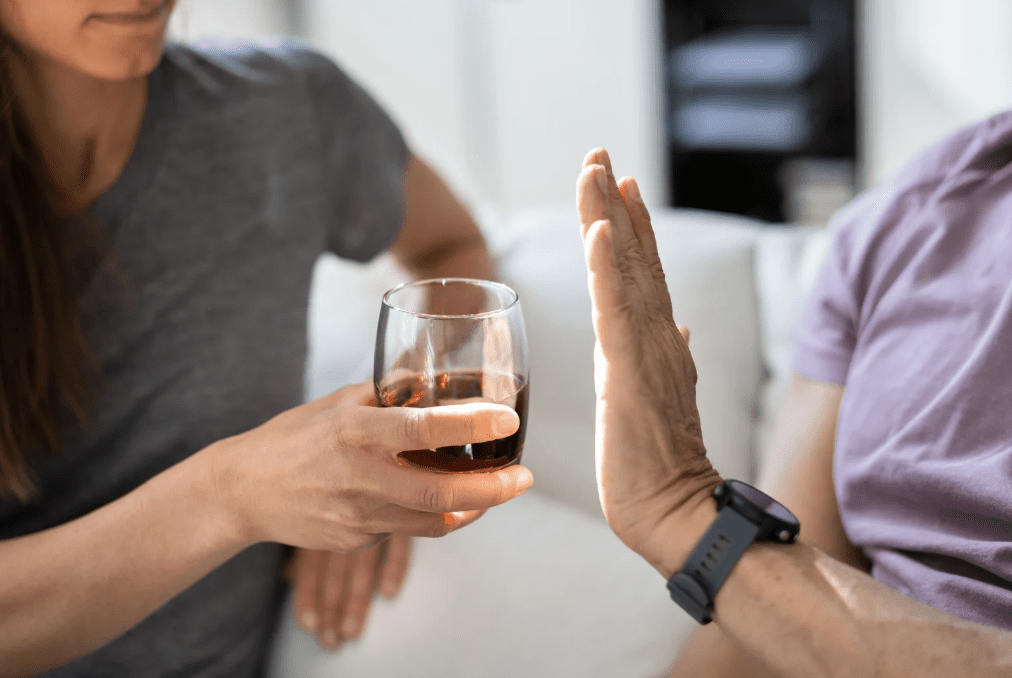Are you ready to take control of your life, but can’t wrap your head around leaving all substances behind for good? You’re not alone. Many people struggling with substances feel exactly like you, and the idea of totally detoxing from alcohol or other substances permanently feels frightening, unsustainable, and—frankly—boring. In this blog, we’ll explore what total abstinence is, why it works, and when other approaches could help.
What is Total Abstinence From Substances?
For decades, total abstinence—cutting out a problem substance along with all others, whether they’re problematic for you or not—has been considered the gold standard in treating substance use disorder (SUD). Total abstinence is the central goal in many treatment programs and 12-Step models, and research shows this approach can be life-changing and effective. People who complete residential treatment that teaches total abstinence often experience improved mental and physical health, fewer legal problems, and a lower risk of overdose or death.
But here’s the hard truth: most people struggling with SUD don’t get help. Refusing treatment doesn’t mean you don’t care, but it may mean that abstinence doesn’t always feel realistic or right for where you are. Here’s some data on the topic:
- Recently, it’s been reported that a little less than 12% of people with an SUD receive treatment.
- Many people might say that the main reason they can’t go to treatment is that they’re simply not prepared to stop using substances completely.
Even when treatment may be free and easy to access, anywhere from 30%-90% of people still refuse to go because they are not ready for total abstinence. This is where non-abstinence approaches come in. These models don’t require someone to quit entirely. Instead, they focus on:
- Helping reduce how often or how much you use.
- Supporting your overall well-being, even if substance use continues or relapse occurs.
- Building trust, reducing harm, and creating space for change.
For some, total abstinence works. However, non-abstinence with substantial substance reduction might be a step in the right direction, especially if you don’t have an SUD diagnosis, are attending an intensive outpatient program (IOP) in Des Moines, and have never required inpatient treatment in Bayard or elsewhere.
If One Substance Is An Issue, Are They All?
It may come as a disappointment, but the research is clear: if you have developed SUD with one substance, like opioids, for example, neither reducing your consumption nor relying on other substances works as well as total abstinence in the long run. That said, non-abstinence for non-SUD diagnoses might be a viable option for you or a loved one. Here’s why, based on a study from the American Psychological Association (APA):
- Attitudes shift. At the time of the study, about half of all substance counselors surveyed said they were open to clients aiming to moderate alcohol use rather than abstain totally. Interestingly, many people nowadays who do not struggle with SUD are choosing to opt out of alcohol, signaling a huge shift in attitudes toward alcohol. Changes in culture and new research findings can all play into these shifting perspectives.
- Professionals usually consider your unique circumstances. Respondents noted that your health, age, level of emotional stability, and specific problem substance were key in deciding whether to support moderation goals.
- The flexibility of a non-abstinence approach helped reach more people. The study’s authors pointed out that people who felt ambivalent about quitting entirely might have been more likely to seek help if the option for reduction was there.
- Other countries were more open. At the time of the study, the majority of UK counselors surveyed supported moderate drinking as a final goal for clients with alcohol issues, and half of them even supported it for confirmed SUD cases.
Overall, while professionals from the study had mixed views, some welcomed harm-reduction milestones, but most rejected non-abstinence for their clients. Even though not everyone benefits from the same path and recovery is never one-size-fits-all, staying abstinent, even if you happen to relapse, points toward greater chances of long-term recovery.
Do I Need Residential Treatment in Iowa To Get Better?
While you may not need to abstain from substances forever if you don’t have a confirmed SUD case, residential treatment in Bayard may be the essential step you need to take to get better now.
With ongoing support, cognitive behavioral therapy (CBT), and the chance to integrate your family and friends into the healing process, you could increase your chances of overcoming SUD permanently. Keep in mind, too, that you may need more intensive support to thrive in abstinence, and 24/7 supervision and care could be life-changing.
If you’re interested in learning more for yourself or a family member, don’t hesitate to contact us today to receive more information and recovery education resources.




